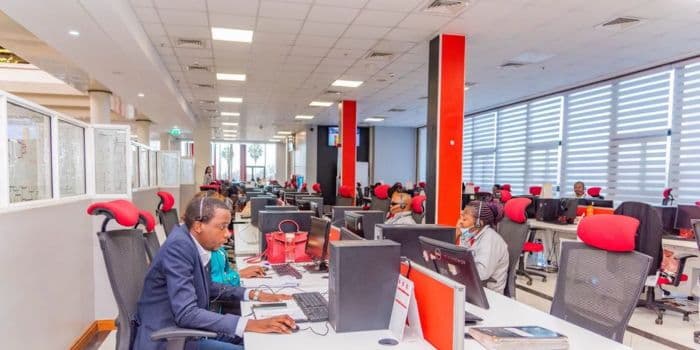We're loading the full news article for you. This includes the article content, images, author information, and related articles.
The Kenya Revenue Authority (KRA) plans to introduce an online chatbot to assist small businesses with tax information and services. This tool will answer common MSME tax questions and is part of a broader effort to simplify tax registration, filing, and payment processes for entrepreneurs.

KRA Unveils Tax Chatbot to Support MSMEs in New Digital Push
NAIROBI, Kenya – June 4, 2025
In a bold move to modernize tax compliance and better support Kenya’s entrepreneurial ecosystem, the Kenya Revenue Authority (KRA) has announced the upcoming launch of a dedicated online chatbot tailored specifically for Micro, Small, and Medium Enterprises (MSMEs).
The digital assistant, currently under development, is designed to offer real-time, accessible guidance to small business owners navigating Kenya’s often complex tax landscape.
Speaking at a stakeholder roundtable in Nairobi, George Obell, Commissioner of KRA’s Micro and Small Taxpayers Department, said the chatbot will help demystify tax obligations for small businesses by providing instant responses to frequently asked questions about registration, filing, and payment processes.
“This chatbot will be a game-changer. It’s designed to meet MSMEs where they are—online—and offer quick, clear, and reliable answers around tax compliance,” said Obell.
The tool is part of a broader digital transformation initiative at KRA aimed at reducing bureaucracy, enhancing transparency, and encouraging voluntary compliance among Kenya’s informal and semi-formal business sectors.
James Mureu, Chair of the Micro and Small Enterprises Authority (MSEA), welcomed the innovation, calling it a strategic step toward a more inclusive economy.
“MSMEs are the backbone of our national growth agenda. With this initiative, KRA is not just a tax collector but a genuine partner in business development,” Mureu stated.
He emphasized the importance of ongoing dialogue between government agencies and business owners to create policies that unlock the full economic potential of small enterprises, many of which remain outside the formal tax net due to lack of awareness or support.
Stakeholders at the event highlighted the need for continuous capacity building, simplified compliance processes, and better use of digital tools to foster a tax culture among MSMEs. The chatbot initiative, they noted, could significantly bridge the information gap that often hinders formalization and growth.
As the country looks to MSMEs to drive job creation and innovation, the KRA’s chatbot could become a critical tool in making tax processes less intimidating and more navigable—especially for first-time business owners.
Keep the conversation in one place—threads here stay linked to the story and in the forums.
Sign in to start a discussion
Start a conversation about this story and keep it linked here.
Other hot threads
E-sports and Gaming Community in Kenya
Active 9 months ago
The Role of Technology in Modern Agriculture (AgriTech)
Active 9 months ago
Popular Recreational Activities Across Counties
Active 9 months ago
Investing in Youth Sports Development Programs
Active 9 months ago